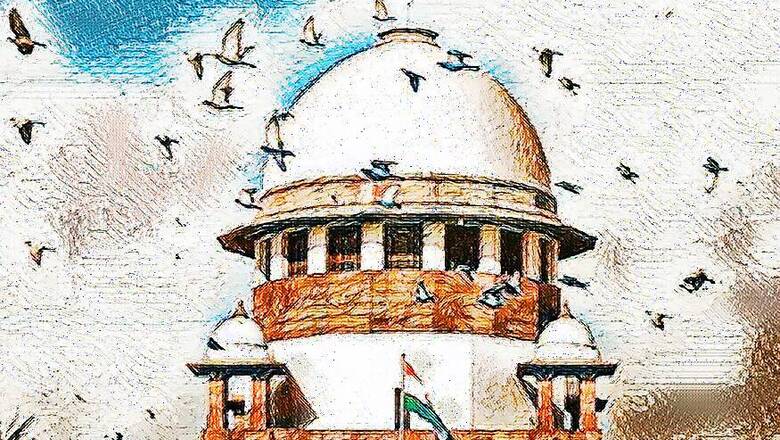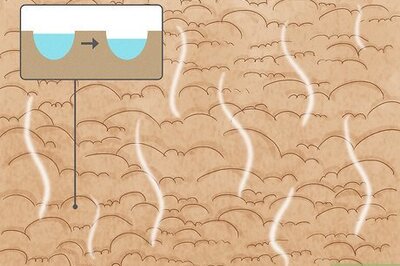
views
New Delhi: The 50-minute hearing over contentious screening of movie 'Padmaavat' saw some quirky exchanges between the bar and the bench.
Senior advocate Harish Salve, appearing for the producer of the movie, premised his arguments on constitutional freedom of speech and expression and creative liberty as he sought to injunct the states from banning the movie.
Ten minutes after arguments, Salve said “sorry” for his high pitch because he felt passionate about Freedom of Speech and Expression and has been arguing for it for last 40 years.
"In this case, we have agreed to do everything that the Censor Board and the expert committee asked us to do but someday I will argue that an artist has a right to even distort history," said Salve.
While Chief Justice of India Dipak Misra asked Salve to not put his arguments on such a higher pedestal in this case, Additional Solicitor General Tushar Mehta, who represented states of Gujarat, Rajasthan and Haryana, raised strong objection.
"No...you can't distort history. We can't let someone show Mahatma Gandhi sipping whisky," said Mehta.
But Salve quipped: "Mr Mehta, that's not even distortion of history." The prompt retort left lawyers in splits.
Salve then added that in the West, they can even make a movie 'Jesus Christ Super Star'. Mehta, however, objected saying: "Let us go by Indian standards."
But the CJI, during the hearing, cited several plays, books and in particular classical Indian literature to maintain that if everything was to be questioned in this manner, "60 per cent of classical Indian literature may not even be read today."
Justice Misra then cited Kalidasa's controversial act 'Nala Damayanti', to make a point about how certain controversial literature had been refused to be translated by academicians.
"Mr Salve…you would not have heard about it," said the CJI and Salve candidly replied: "Fair assumption."
Justice Misra then recalled that as a judge in the Delhi High Court, he had dismissed a petition that wanted movie 'Dhobi Ghat' banned.
The lawyers for producer Viacom18 were not ready with its judgment but an associate lawyer retrieved the judgment on his mobile phone and handed it to Mukul Rohatgi, who also appeared for the producer.
"That's technology at its best," said Salve as Rohatgi started reading out the judgment on the mobile phone.
The CJI then asked Rohatgi to read out the last paragraph of the judgment. With a little bewilderment, Rohatgi said the last paragraph reads as imposing a fine of Rs 25,000 on the petitioner.
It was now the turn of Mehta to respond. "That's the technology at its worst."
The CJI then asked Rohatgi to move a paragraph up and read out the operative part.
Justice Chandrachud, who is from Maharashtra, also cited his own experience. "Years ago, there was a play in Marathi called 'Mee Nathuram Godse Boltoy' which was sought to be banned by the state but the High Court said it is the state government's duty to maintain law and order," said Justice Chandrachud.
The CJI supported this by referring to 'Sakharam Binder,' play by Marathi playwright Vijay Tendulkar that was banned in India in 1974.
"Then there is a book called 'Naked Ambition (which talks about sex life of Mahatma Gandhi) and another book 'The man who killed Gandhi'. This court has been protecting these constitutional rights and artistic freedom," said Justice Misra.

















Comments
0 comment